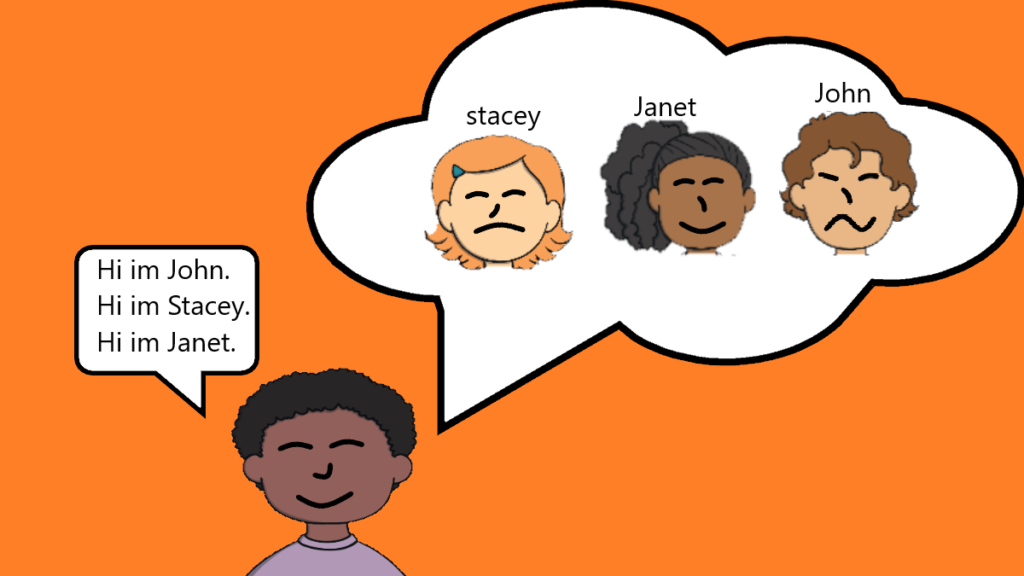What is dissociative identity disorder (D.I.D)?
Dissociative identity disorder is a mental health condition, where an individual has two or more distinct personalities. Throughout different times of the day their personalities will take control of their behaviour. With each identity they have their own likes, dislikes, and traits. Individuals that have D.I.D tend to have gaps in their memories, they will sometimes hallucinate things making it difficult for them to know what is real and what is a hallucination.
Dissociative identity disorder also sometimes known as multiple personality disorder and split personality disorder, it is a very rare mental condition as it only affects between 0.01 and 1% of the population. Women are more likely to get D.I.D than men.
What are the signs of dissociative identity disorder?
An individual with dissociative identity disorder will experience the presence of how many identities they have. Some individuals can get up to 100 different identities. The identities are also known as alters. When an alter takes control of the core identity the individual may start to act differently as it has control of the individual’s behaviour. The alters are all different to each other, they have different names, genders, ages, and preferences to the core personality. This is one of the main signs of dissociative identity disorder.
They will change their voice, how they act, their posture; things that they usually like they may no longer. Another sign of D.I.D is memory loss. People who have D.I.D tend to get memory loss; this is due to that when their alters take control it becomes difficult for them to remember things they had done. There are many other signs of D.I.D such as:
- Feeling detached or disconnection
- Major anxiety
- Hallucinations
- Losing gaps of time
- Randomly remembering forgotten memories
- Depression
- Suicidal thoughts/ self-harming

What causes dissociative identity disorder?
In the development of dissociative identity disorder, it is believed that the critical role is a history of trauma. When it comes to D.I.D 90% of individuals who have it have experienced past abuse. People with DID usually report the experience of severe repeated sexual as well as physical abuse. They also frequently have concurrent symptoms of borderline personality disorder which include:
Impulsive behaviour: Lashing out without realising they are doing so. Saying things that they know they do not need to say but do it anyway.
Self-harming: Causing harm to themselves whether it is to deal with difficult feelings and thoughts or unintentionally. For example, cutting their arms/legs.
What treatment is given?
Treatments for dissociative identity disorder mostly involve psychotherapy. Individuals with D.I.D will be referred to a healthcare provider who specialises in mental health disorders, for example a psychologist or psychiatrist.
They will help guide them to the right type of treatment they require. The three types of therapy they will provide are group, individual and family therapy sessions. These therapy sessions will mainly focus on 3 treatment methods, they are;
- Managing your sudden behaviour changes
- Identifying and helping through pass trauma and abuse
- Trying to merge separate identities into one identity.
Another treatment which is given to individuals who have D.I.D is medication. The medication may help with certain symptoms of D.I.D, such as anxiety and depression.
Can dissociative identity disorder go away?
When it comes to D.I.D there is no cure. Individuals who have D.I.D tend to learn how to manage the disorder for the rest of their lives. However, with all the treatment given it can help reduce the symptoms.
Therapy will help teach individuals struggling with their dissociative identity disorder how to have more control of their behaviour. It is a slow progress but over time they will learn how to function better at home, work, and public places.
How to help someone with dissociative identity disorder.
It can be quite a challenge to know the best way to help someone struggling with dissociative identity disorder. Making an effort to understand an individual’s experiences and seek out advice is the best first step when it comes to helping someone. There are a few ways that can help someone with dissociative identity disorder such as:
Stay calm when individuals switch
In the majority of cases, the switch between alters can happen very subtly. Consequently, sometimes the change can be more dramatic and disorienting. At the start you could be talking to your friend when all of a sudden in the next moment, it’s as if a completely different person has taken over their body.
Situations like this can be very stressful and even scary, however remaining calm and level-headed can be enormously helpful. This is because when you stay calm it helps you meet the same mentality level as them. Switching can be scary for the individual experiencing it, especially when they do not understand what is going on themselves. They may feel embarrassed and ashamed so staying calm will help them realise they are not being judged.
Learning about dissociative identity disorder and its symptoms
Having general knowledge of dissociative identity disorder will help people. Individuals who struggle with D.I.D tend to feel like they are alone and that nobody understands them. When it comes to people learning and acknowledging the symptoms it makes them feel like others are taking the time out to understand them as a person.
Consequently, the individual with D.I.D no longer feels alone. They no longer feel afraid to speak up about their condition because they know others have researched information therefore, they have a clearer understanding instead of guessing and judging.



